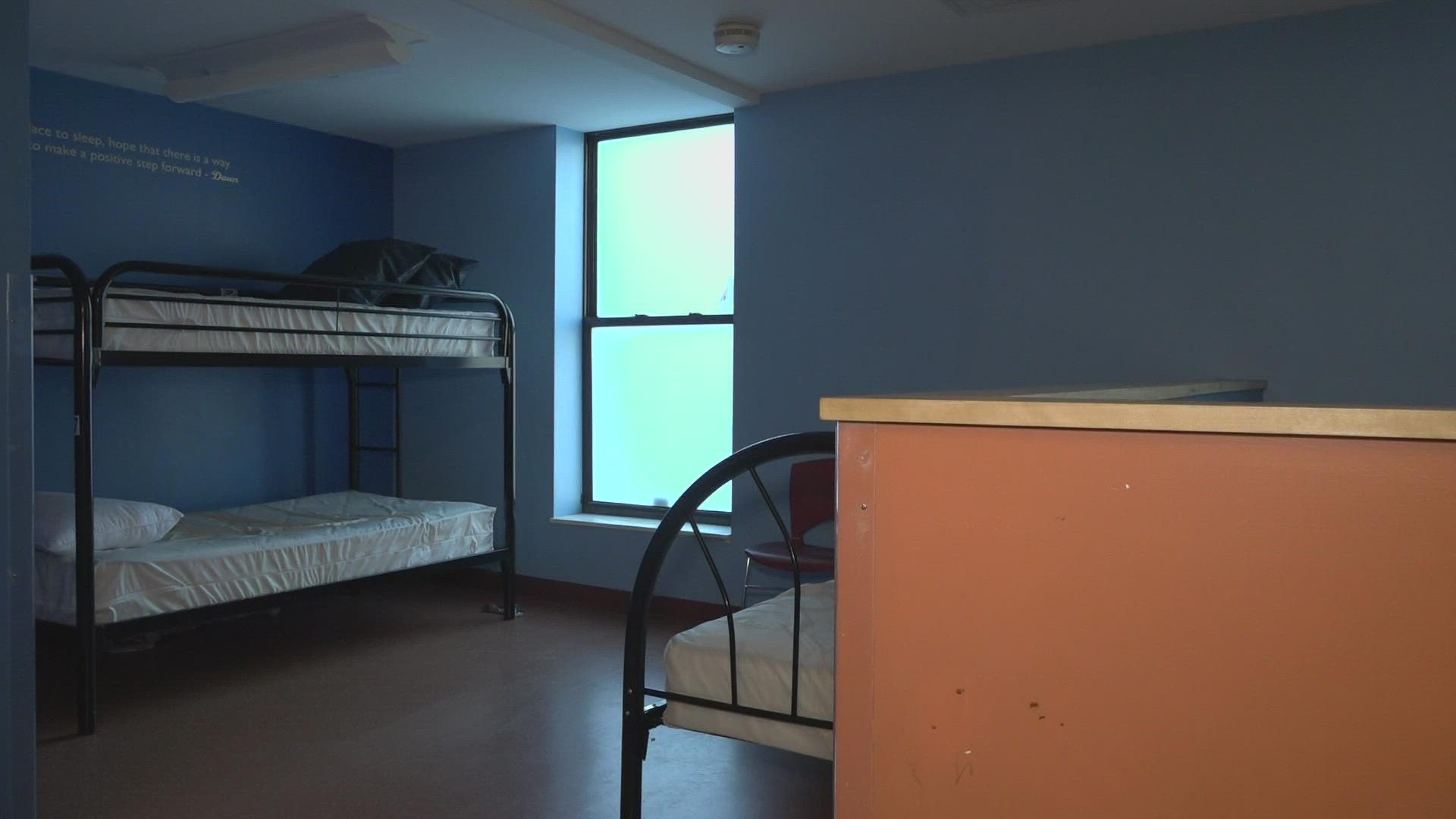PORTLAND, Maine — Youth homelessness is an ongoing problem statewide. That has been more noticeable recently, as Preble Street's Joe Kreisler Teen Shelter in Portland has been at maximum capacity for a week. It's the first time this has happened since February of 2020.
The shelter can house up to 24 people between 12 and 20 years old. Preble Street officials said youth are typically there for an average of three to six months before they can change living situations. The recent increase in need is due in part to fewer available services, as well as teens who age out of those programs.
"A lot of young people are coming to us who have aged out of foster care, who have aged out of the juvenile justice system, who have aged out of group homes," Kiersten Mulcahy, the director of teen shelter services at Preble Street, told NEWS CENTER Maine. "We're also seeing a younger population of youth — so, the 15- to 17-year-olds noticing that DHHS doesn't have as much resource or capacity to work with the older, minor youth."
According to Preble Street, 30% of Mainers experiencing homelessness in 2020 were under 24 years old. Youth who identify as LGBTQ+ are 120% more likely to experience homelessness. That at-risk rate rises to 162% for youth who are experiencing poverty. Mulcahy said the experience of homelessness is often accompanied by other things, too — even after the fact.
"The experience of becoming homeless is in itself a traumatic experience," Mulcahy said. "The longer a young person remains homeless, the longer they're exposed to this extended period of traumatic experiences — and that's coupled with whatever situation they end up leaving."
For that reason, Mulcahy said she thinks it's important not to blame youth because they can't always control the situation, and it can be hard to manage. That's something Challen Frankowski, a 20-year-old who has been staying at Preble Street periodically since February of 2020, said he can relate to firsthand.
"I'd say the hardest part was getting things done during the pandemic because a lot of offices for things were closed back then," Frankowski said. "Now, things are starting to open up a little bit more, and I'm able to get more progress done. For example, I've been working on getting my birth certificate, my ID, and my Social Security card."
Mulcahy said Preble Street will never turn anyone away. While at maximum capacity, staff members are working with young people to figure out who may have alternative options (like couch-surfing or looking to the Oxford Street Shelter to make room for youth), even if just for a night.
The nonprofit's ultimate goal is to help these teens get housed. Mulcahy said that in 2021, Preble Street has housed 49 youth in independent and permanent living situations and nine in transitional or supported situations. That process has become a bit more difficult recently because of the competitive housing market in Portland. It's why Mulcahy is asking for support from landlords or larger management companies.
"Giving a young person a chance to have their first apartment can really mean changing their life path and giving them an opportunity to be independent and really kind of [work] on their own goals and what they want to do with their life," Mulcahy said.
Mulcahy said another mission in the works, via a grant with the Youth Homeless Demonstration Project, is to establish mobile diversion and outreach programs that will span 11 counties through schools and communities. That project is designed to help keep youth experiencing homelessness in their familiar communities.

